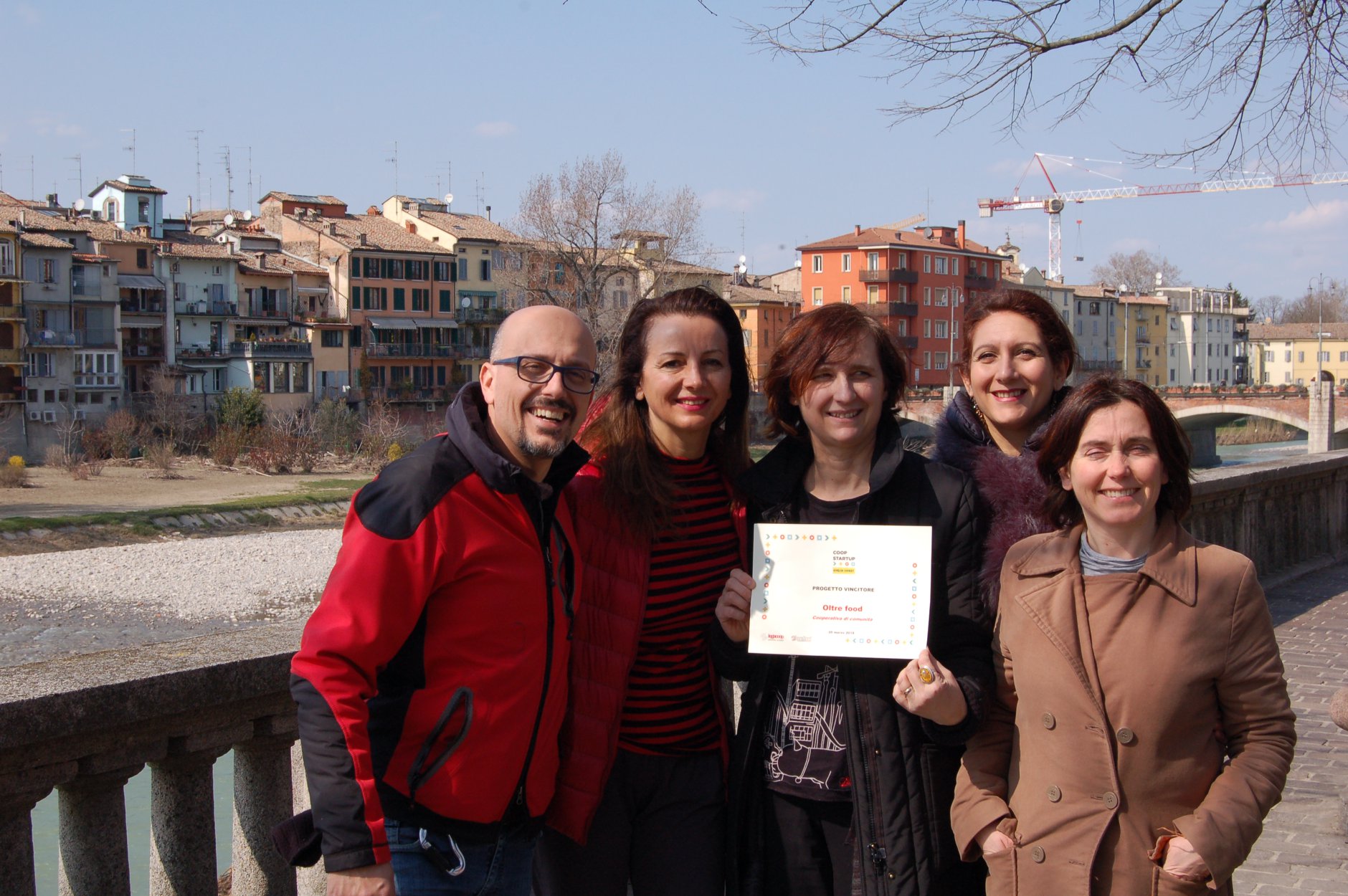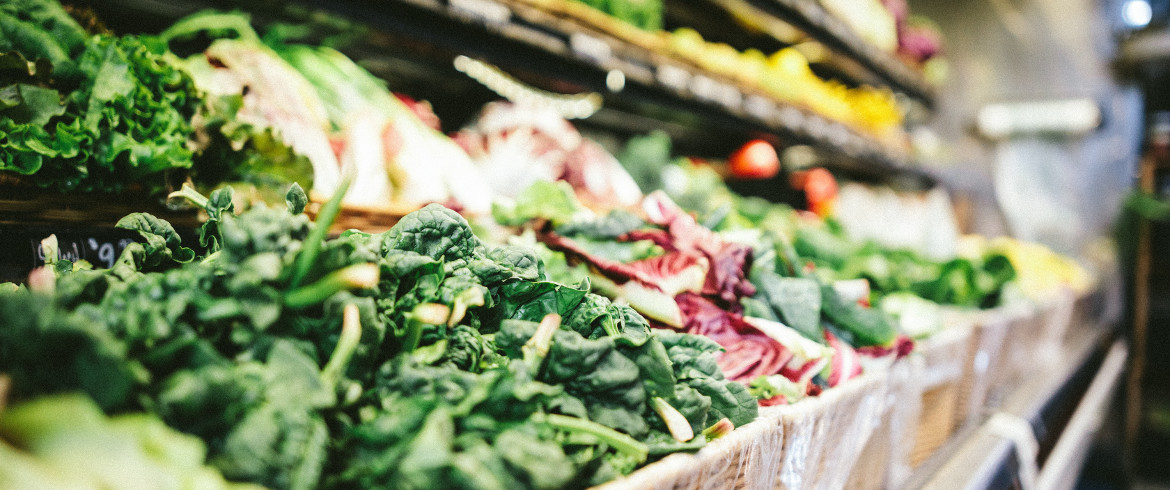Collaborative supermarket or Food Coop: this is how it is called. The idea comes from New York, in the 70s, but it has become popular also in Paris, Bruxelles and now also in Italy. Let’s discover more about it and interview one of the founders of OLTRE Food Coop, the next Italian collaborative supermarket.
Try to think about a supermarket which is different from the everyday ones. A place where you can find biologic and green products that are chosen for their quality and the short supply chain, the ethical conduct and the respect of the environment. Products that are chosen by the consumers themselves and can be bought at low prices. A supermarket which is created from the bottom, from a group of people sharing the idea of changing the world through their purchases. The idea was born in New York, at Park Slope, in 1973, and then arrived in Paris in 2005, Bruxelles in 2017 and now in Italy, in the centre of Emilia. Here its name will be OLTRE Food Coop and the collaborative supermarket will involve the town of Parma, more specifically its historic and multicultural district “Oltretorrente”.
A collaborative, ethical and self-managed supermarket
What does “collaborative supermarket” mean? A Food Coop is a very special shop: a no profit selling point cooperative managed where the shareholders can do the shopping and have to work in the shop 3 hours per month.
The idea is as simple as powerful: during meetings, the shareholders choose the products to sell, giving support to the local supply chain and that of the small-scale productions in order to have always bio and quality products. Thanks to their commitment, the products here cost less than those of the shops with biological brand.
It is a collaborative reality that leads people to meet and work together while building a sense of community, not just around food. Here you have a trailer about it from Boothe’s documentary. Boothe is an American who moved to Paris and analysed how the collaborative supermarket Park Slope Food Coop in New York worked. At the same time, he also developed the Food Coop project in Paris.
OLTRE Food Coop: the collaborative supermarket in Parma
This experiment, which is also a social innovation experience and a urban regeneration, will take place in Parma, in one of the most multi-faceted districts of its historic centre: Oltretorrente. Here a mixture reach in historic heritages and multiculturalism live together.
This way, even this small town in Emilia, which is already renowned as “food capital” (and Cultural Capital in 2020), can try the food coop model. This will be the first Italian experience of a community based on solidarity promoting cooperation and sustainable consumption while providing support to the green local productions.

Its founders, graduates, fond of green economy people and teachers think that OLTREfood Coop is not just a virtuous consumption model, but also an educative idea that conveys the importance of working in a team, of a virtuous de-growth and solidarity. “It is an idea that can be replicated, it is light and viral” – as Carlotta Taddei says enthusiastically. She is a teacher, PhD in history of art, graduated in pedagogy and one of the founders of OLTREfood Coop. This is what she told us:
How did you come up with the idea of OLTRE Food Coop?
The idea of OLTREfood Coop was born after having heard of it in Paris, thanks to what one of the people involved there told us, and how it was going in Bruxelles and New York. We understood that it was a virtuous model that could be adapted to different places, too. So, we thought that also our town (Parma) needed it.
It was a group of people living in Parma who had the idea. Some of us were joining a GAS (Gruppo di acquisto solidale), while others were just friends interested in the idea who wanted to join to realise the project.
How does a Food Coop work?
A Food Coop works in a very simple way only at a first sight: it is a cooperative society ‘a mutualità prevalente’. Therefore, you cannot be a shareholder for this “shop” if you are not also a worker member. This means that you can not do the shopping if you don’t work in it.
In short, shareholders have three rights and obligations:
- To work at least 3 hours per month;
- The right to do the shopping;
- The right to take part to the meetings and choose through their own vote what products are to be sold in the shop.
This lets shareholders directly partecipate in the support of the local supply chain. Who has the power to decide what products are to be sold is the shelf: if the shelf gets ‘empty’ means that the products work. But shareholders can decide not to sell certain products because they are not equal, not “clean” or they are realised through exploitation… so, to promote a different economy.
Will the products cost more than in a normal supermarket?
The products may have a higher price if we compare them with those of the large retail sector, which can set lower prices because of no respect to the producers and the territory.
But prices will surely be lower and competitive if we compare them with those of the green shops, those of the certified organic fair.
We want to think that our prices will be equal and therefore corresponding to the hard work behind it and suitable to the expectations of whoever will choose our products.
What is your idea of responsible consumption?
The idea is that of spending a little of our time (the most important thing we have) to make a community live also throughout the purchases.
We are all necessarily consumers, but we want to be active ones. This means that we buy what we choose and not what we randomly find on the shelf.
This is our idea of responsible consumption: we want to decide what to buy and what to put on the shelves.
What are the next steps?
The next steps will be realised during these days: our advertising campaign will start. We have planned a series of events to become well-known. Among these, there is Altra Velocità Festival, which will take place at the beginning of summer in Val di Susa.
Up to this moment we have only studied, worked and produced closed in a room. Now we want everybody to know about who we are and what is our project about.
We want to find the first shareholders: our aim is to have more than 100 shareholders . This number will allow us to start with the first step, which will be a small and “transitional” shop. It will not stay open everyday nor have all the products, but it will try a self-managed working model.
Thank you Carlotta for the interview and good luck for this beautiful adventure.
If you are eager to know something more about it, then follow Parma OLTREfood Coop project Facebook page, and see this 7 minutes video that tells about “The Park Slope Food Co-op” experience in Brooklyn (New York).
Who would not want a collaborative supermarket in every town?!
